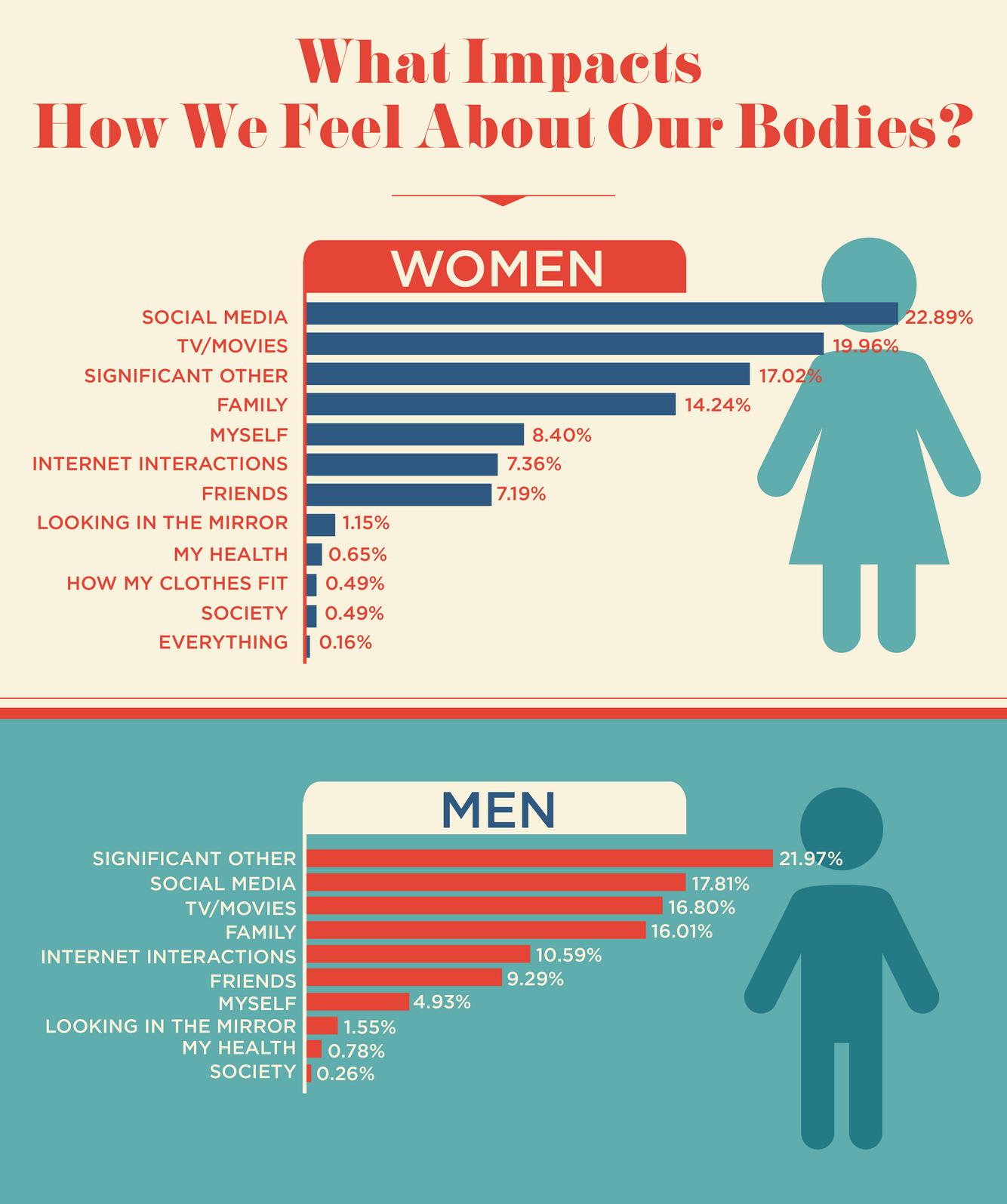
3 minute read
Social media and its impact on body image (Gabby Campbell
UNDERSTANDING THE ISSUE
Since its creation, social media has allowed us to become increasingly more connected with what is happening all over the world, but it has also enabled us as a society to put a greater focus on our body image. The more we become exposed to bodies that vary from our, the more things we can become insecure about. Unlike other modes of media social media has a very interactive interface which means that not only are we watching it, we are actively giving these topics and images a platform to which they can be consumed.
Advertisement
WHO DOES IT AFFECT?
This topic affects almost everyone in one form or another. In fact, a study conducted in 2020 found that 87% of women and 65% of men compare their bodies to images they consume on social and traditional media. In that comparison, a stunning 50% of women and 37% of men compare their bodies unfavorably. (Fardouly and Vartanian). This study just goes to show how universal of a topic this is and how these extremely curated versions of our lives that we post on social media can have very real and significant impacts on both ourselves and others. It is also worth noting that the spread and normalization of social media has resulted in younger and younger populations having access to unrealistic body expectations, diet culture, and other forms of information that can result in them developing a negative feeling about themselves.
GLOBAL IMPLICATIONS
Body image, or more specifically unrealistic beauty standards that influence one's body image, is a global issue because of the fact that social media is present on a global scale. Social media allows us to connect with people from all around the world and as a result of that people are exposed to more beauty standards and information that can have an impact on their body image.
FIXING THE PROBLEM
Finding solutions for this issue is uniquely hard because of the method of the information. One of the biggest concerns is that by attempting to regulate some of the posts that could have unverified information regarding the body, it would be considered a type of censoring. That being said, some websites have tried to take matters into their own hands, but the results have been less than promising. Blackford, Meghan (2020, Nov. 30). Factors that Shape Body Image for Men and Women[Infographic]. FHE Health. https://fherehab.com/news/bodypositive/For example, the Instagram policy explicitly says that, “any account found encouraging or urging users to embrace anorexia, bulimia, or other eating disorders....will result in a disabled account without warning” and if you look up certain hashtags associated with eating disorders you can see that the content under them is being monitored to ensure it meets community guidelines. That being said, there are lots of ways to find these types of posts, especially if people label the posts as being about health, wellness, or fitness.
MY OPINION
Personally, I believe that social media has had significantly more harm on people's perceptions of their bodies. As someone who has largely grown up with social media, it can be hard not to compare yourself to the people that you constantly see on Instagram, Twitter, Pinterest, or even TikTok. I think the most alarming part of social media as it relates to body image is the amount of misinformation that can be spread and the normalization of very unhealthy behaviors. That being said, I also think social media has and can be used to normalize things regarding our body that are considered taboo and to spread awareness to all the different forms that bodies can take and how everybody is different







